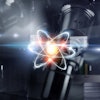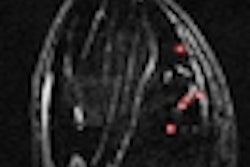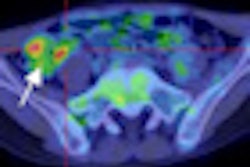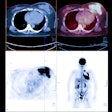The Radiation Therapy Oncology Group (RTOG) and the American College of Radiology Imaging Network (ACRIN) have launched a joint phase II trial to evaluate adaptive radiation therapy with FDG-PET/CT in patients with non-small cell lung cancer (NSCLC).
The RTOG 1106/ACRIN 6697 trial, which started on February 22, will evaluate whether information gained from an FDG-PET/CT scan during the course of radiotherapy can facilitate individualized therapy for patients with stage III, inoperable NSCLC. The researchers hope to learn whether adaptive radiation therapy improves local regional tumor control better than standard radiation therapy treatment.
All participants will undergo a baseline FDG-PET/CT scan as part of their treatment planning. Both the control and experimental groups will receive radiotherapy once a day, five days a week, for six weeks.
Participants in the experimental group will have radiotherapy planning modified to provide as high a dose as possible to the residual active tumor, while keeping doses to normal lung tissue constant (mean lung dose of 20 Gy) and doses to other adjacent organs within safe limits. Participants randomized into the control group will receive a uniform radiotherapy dose (60 Gy).
After four weeks of treatment, both study groups will undergo a second FDG-PET/CT scan. The scans will be used to determine how well patients' cancers responded to treatment based on tumor intensity, tumor size, and other factors.
In a subset of participants, fluorine-18 fluoromisonidazole (FMISO) PET/CT will be used at baseline to identify the presence of hypoxia, or reduced oxygen levels, which inhibits the production of oxygen-free radicals that enable radiation to damage DNA and kill tumor cells.




















